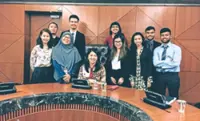The ever-increasing need to meet the 2030 Climate Pledge, draws closer and Malaysia is gearing up with plans to reach net zero by 2050, as agreed upon in the Paris Agreement 2015.
As the nation strives to fulfil the promise of cleaner renewable energy (RE) sources, there is a need to explore and discuss areas of expertise, solutions and technology related to these decarbonisation efforts.





